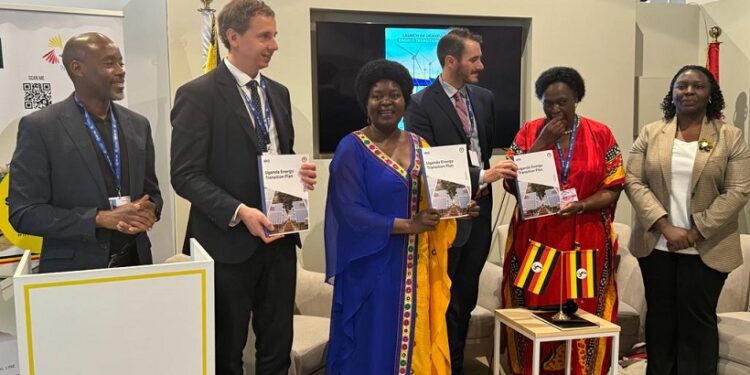Uganda at COP28: Energy Transition Plan Set to Provide Universal Access to Electricity for All
The Ugandan government’s unveiling of the Energy Transition Plan at COP28 marks a groundbreaking initiative poised to revolutionize Uganda’s energy landscape.
This strategic move aims to position the East African nation as energy-secure, environmentally responsible, and highly attractive for private sector investments.
While making her keynote address at the COP28 on Tuesday in Dubai, the Ugandan representative highlighted the key components of the Energy Transition Plan.
One of the main objectives of the plan is to provide universal access to electricity for all Ugandan citizens by 2030. This ambitious goal demonstrates Uganda’s commitment to improving the quality of life for its people and driving economic growth through sustainable energy solutions.
In addition to expanding access to electricity, the Energy Transition Plan focuses on promoting renewable energy sources such as solar, wind, and hydroelectric power. By harnessing these clean energy technologies, Uganda aims to reduce carbon emissions and combat climate change while ensuring a reliable and affordable energy supply for its population.
The plan also includes initiatives to enhance energy efficiency, strengthen regulatory frameworks, and attract foreign investment in the energy sector. These actions are designed to create a conducive environment for businesses to thrive and contribute to Uganda’s overall development.
Overall, the Energy Transition Plan represents a significant step forward in Uganda’s journey towards a more sustainable and prosperous future. By embracing renewable energy and prioritizing universal electricity access, Uganda is setting a positive example for other nations to follow in the global transition to a cleaner and more resilient energy system.
How will this impact me?
As a global citizen, the implementation of Uganda’s Energy Transition Plan will have far-reaching effects on various aspects of your life. Increased access to electricity in Uganda means improved living conditions for its citizens, as reliable power supply is essential for household activities, education, healthcare, and economic productivity. Furthermore, the shift towards renewable energy sources can help mitigate climate change and reduce environmental degradation, leading to a healthier planet for future generations.
How will this impact the world?
The successful implementation of Uganda’s Energy Transition Plan has the potential to inspire other countries to accelerate their efforts towards sustainability and renewable energy adoption. By demonstrating the economic and environmental benefits of clean energy solutions, Uganda can influence global energy policies and encourage international cooperation in combating climate change. Ultimately, the world stands to benefit from Uganda’s leadership in promoting a more inclusive, equitable, and environmentally conscious energy transition.
Conclusion
In conclusion, Uganda’s Energy Transition Plan symbolizes a bold commitment to sustainable development and energy security. By prioritizing universal electricity access, renewable energy investments, and regulatory reforms, Uganda is paving the way for a brighter future for its people and the planet. As the country continues to implement its ambitious plan, the world watches with anticipation and admiration for the positive impact it will have on global energy transitions and climate action.





